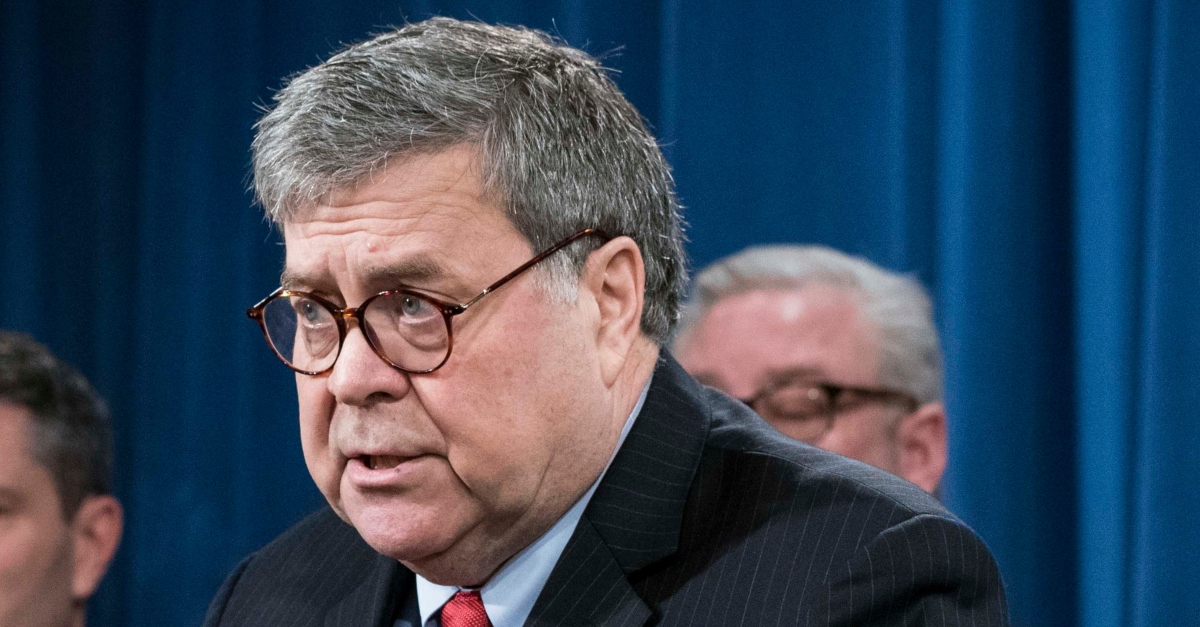
The U.S. Court of Appeals for the Second Circuit on Monday rejected an application from a coalition of states which sought to have the full panel of circuit judges rehear a legal challenge to a Trump administration rule allowing the Department of Justice to withhold federal funding from sanctuary cities. Through a series of vitriolic concurring and dissenting opinions on the matter, the judges illustrated a stark divide on the issue which appears destined for the U.S. Supreme Court.
A three-judge Second Circuit panel in February unanimously ruled that Attorney General William Barr had the authority to deny federal law enforcement grants to states and local governments that maintain “sanctuary” immigration laws to protect undocumented immigrants from deportation. Other than the Second Circuit, where Donald Trump has appointed five of 13 active judges, every district and appellate court that has examined the issue, including the First, Third, Seventh, and Ninth Circuits, have reached the opposite conclusion.
In rejecting the en banc rehearing petition, Bill Clinton appointee José A. Cabranes was joined by Trump appointees Richard J. Sullivan, Joseph F. Bianco, William J. Nardini, Steven J. Menashi, and George W. Bush appointee Debra Ann Livingston.
The dispute stemmed from a controversial DOJ directive which conditioned millions of dollars in Justice Assistance Grants (JAGs) – also known as “Byrne Grants” – on agreements by state and local governments to comply with a series of immigration-related conditions designed to assist federal immigration officers in apprehending illegal immigrants. Government bodies that refused to certify compliance with the DOJ’s conditions, which essentially guaranteed that federal agents would be given advance notice of the date and time aliens in custody were to be released, would see their applications for the Byrne JAG grant denied.
In a 15-page dissent to the circuit’s decision to reject an en banc hearing, Judge Rosemary Pooler, an appointee of President Bill Clinton, said she was “frankly, astounded” by her colleagues.
“The circuit split—which generated a host of persuasive opinions from our sister circuits—calls into serious question the correctness of our Court’s rationale and conclusions,” Pooler wrote. “The opinion in New York v. U.S. Department of Justice ignores the words of the statute, the relevant legislative history, and the conclusions of our sister circuits. I am, frankly, astounded that my colleagues did not find this a case of exceptional importance warranting en banc review.”
Barack Obama appointee Raymond Lohier Jr. penned an even more virulent opinion concurring in the overall decision, but only so it reaches the Supreme Court “sooner rather than later.”
“Until today, every single circuit judge to have considered the questions presented by this appeal has resolved them the same way. That’s twelve judges—including one former Supreme Court Justice—appointed by six different presidents, sitting in four separate circuits, representing a remarkable array of views and backgrounds, responsible for roughly forty percent of the United States population, who, when asked whether the Attorney General may impose the challenged conditions, have all said the same thing: No,” Lohier wrote.
“Undeterred, the panel breaks course in an opinion as novel as it is misguided. As my colleagues explain in their dissent from the denial of rehearing in banc, and as Justice Souter and Judges Selya, Barron, Rendell, Ambro, Scirica, Rovner, Bauer, Manion, Wardlaw, Ikuta, and Bybee have collectively demonstrated, the panel opinion misreads statutory text, misconstrues constitutional doctrine, and mistakes the conclusion that it prefers for the one that the law requires.”
See below for the full slate of opinions.
Sanctuary City 2nd Circuit Enbanc Opinion by Law&Crime on Scribd
[image via Sarah Silbiger_Getty Images]